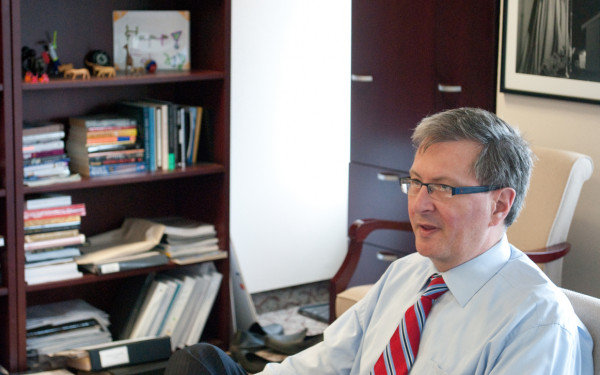Committee Isn’t Community
It seems that President [Frederick] Lowy wants to stay longer at Concordia.
In February, he created an unusual external committee of three former top educational bureaucrats to diagnose problems. He then invited written submissions from all members of Concordia.
Everything may look democratic, but such “solutions” represent typical bureaucratic maneuvers to justify delays with blurred responsibilities, while also opening doors for continued external manipulation.
Rather than creating this new committee to diagnose management problems, it would be preferable to organize a more transparent election of the next president, without delay.
At stake is giving the new top brass a stronger mandate by the whole Concordia community, then choosing the best-offered policies from the competing candidates during direct election. Only in this way will the selected leader have fewer problems when dealing with the 46 Board of Governors of Concordia.
I think the new president ought to reduce the BoG’s size to 25 people, as was done at McGill in 2005. The new president can become stronger than Lowy, who shaped “his” BoG between 1995-2005.
After Lowy’s departure, the BoG became the top player, overruling not only the president, but also the Senate and other bodies. The board caused friction and led to the costly departure of the previous two presidents. As new leaders, these presidents were simply not strong enough for open debates with the BoG and so the community did not know the details of the strategic differences between the two sides.
Now we see an artificial return of Lowy to the strengthened presidential position and no
profound dialogue, which would be enriching this community.
We shouldn’t have a problem with more powerful top administrators in our English universities if the majority of academics, students and staff members elect them democratically.
The present system of only electing members for a president Search Committee allows for manipulation, as there is an absence of a transparent final selection. Point 78 of Concordia’s Rules for Senior Administrative Appointments states: “Members of the President Search Committee shall sit as individuals, not as delegates of their constituencies.”
A similarly controversial regulation applies at McGill and
means that those initially elected to represent the whole community are later isolated and experience enormous pressure from the top external executives who typically dictate which candidates they want, and in what order.
What about replacing Concordia and McGill’s current practice of choosing a president (or Principal, in McGill’s case) behind closed doors with a more open and democratic election? It is possible to arrange it without delay.
—Slawomir Poplawski,
Former technician, McGill
University
Department of Mining and
Material Engineering



_600_375_90_s_c1.jpg)


_600_375_90_s_c1.jpg)